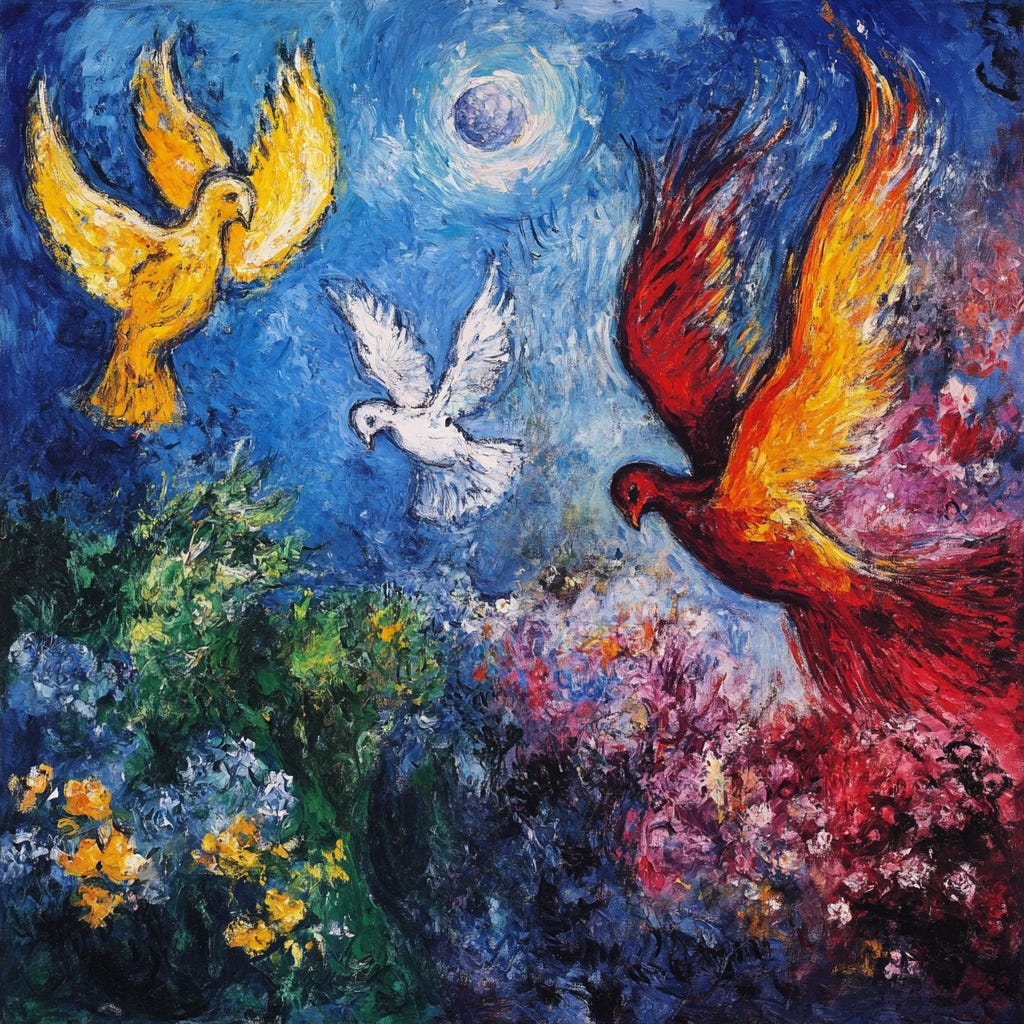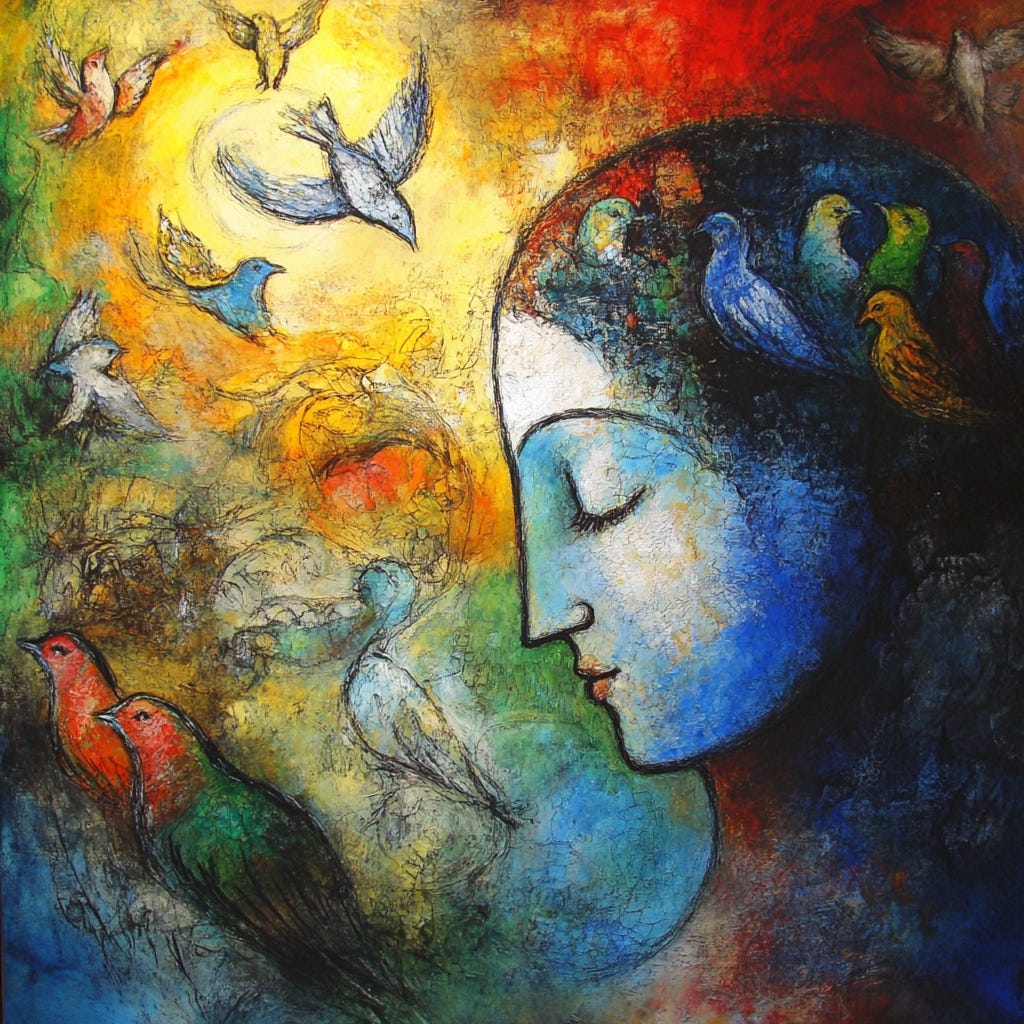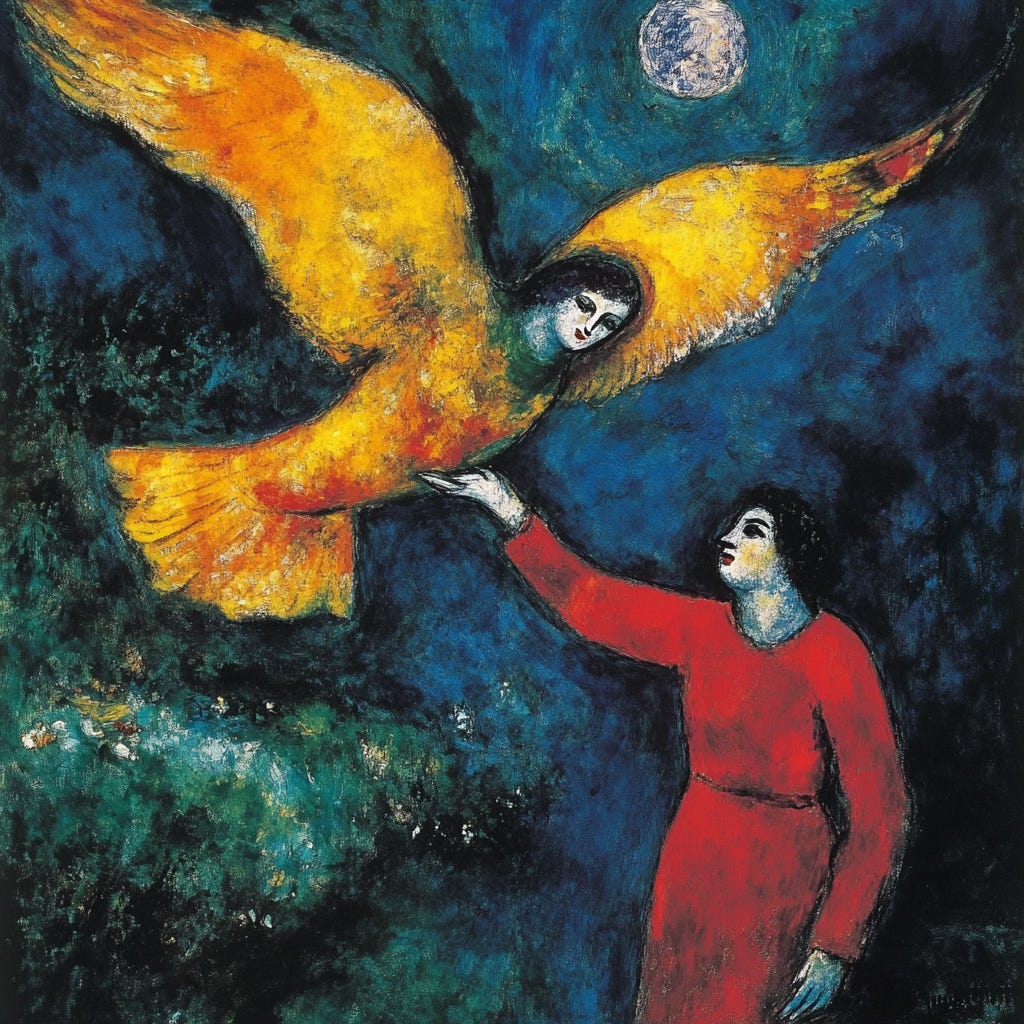A Spiritual Trifecta
Lent, Ramadan, and the Bahá'í Fast—oh my!
Greetings, Soul Snackers!
Today (March 5) marks the first day of Lent—the season in the Christian calendar where believers embark on 40 days of fasting, reflection, and spiritual renewal in preparation for Easter. Meanwhile, Muslims and Bahá’ís have already begun their respective fasts, with Ramadan and the Bahá’í Fast both starting last week. This creates a rare celestial and calendrical convergence: three of the world’s major religious traditions—Christianity, Islam, and the Bahá’í Faith—all observing a season of restraint at the same time.
Call it the holy trifecta of fasting, a worldwide spiritual reset, or just a very bad time to invite some of your religious friends over for lunch.
Now, if you’re wondering, “Wait, don’t these traditions follow different calendars?” You are absolutely correct. Ramadan follows the Islamic lunar calendar, which means it moves about 11 days earlier each year, while the Bahá’í Fast follows a solar calendar, making it more fixed. Lent, meanwhile, is tied to Easter, which is calculated from the vernal equinox and the phases of the moon—because, obviously, figuring out a holy season should involve both astronomy and algebra.
The point is: this overlap doesn’t happen very often. But this year, millions upon millions of Christians, Muslims, and Bahá’ís are all practicing some form of fasting—each in their own unique way, but with a deeply shared purpose.

A Spiritual Reset
A season of spiritual restraint is, at its core, a time of meditation and prayer, a period of spiritual recuperation, a chance to pause and reset. It’s a moment to step back from constant consumption and distraction and turn inward. It’s a time to make the necessary readjustments in one’s inner life, to refresh and reinvigorate the deeper spiritual forces that so often get buried beneath the noise of daily existence. A physical fast—whether it’s abstaining from food, drink, or certain habits—is symbolic. It serves as a visceral reminder of the need to step away from selfish desires, from unchecked cravings, from the things that so easily control us. It’s about realignment, recalibration, and remembering that we are more than our appetites.

The Great Spiritual Detox
Here’s the thing: we live in an era of constant consumption. We binge-watch, we doomscroll, we over-caffeinate, we rack up Amazon purchases at an alarming rate. We eat when we’re bored, snack when we’re sad, and double down on dessert just because it’s there.
Fasting, in every spiritual tradition, says: Pause. Stop. Step away from the buffet.
But this isn’t just about deprivation (though yes, there is some definite deprivation—goodbye, breakfast burritos).
It’s about restraint as a spiritual practice. About intentionally creating space for something deeper.
While practiced differently across Christendom, Lent invites Christians to fast, pray, and reflect for 40 days, mirroring Jesus’ time in the wilderness. It’s a time of giving up something—be it meat, sweets, social media, or whatever modern vice you feel has too strong a hold on you.
Ramadan, for Muslims, is an entire month of fasting from dawn to sunset—no food, no water, no coffee (which, let’s be honest, is the real test of faith). But beyond the physical fast, it’s a time of deepened prayer, reflection, and heightened generosity—a time to refine the soul and focus on one’s connection with God. (Note: before you start imagining a month-long caffeine withdrawal nightmare, it’s important to know that there are exemptions—children, the elderly, the sick, pregnant or nursing mothers, travelers, and anyone whose health would be at risk are not required to fast. Because, as much as discipline is a part of it, so is mercy.)
The Bahá’í Fast is a 19-day period where Bahá’ís over age 15 abstain from food and drink from sunrise to sunset, mirroring Ramadan in some ways but functioning more like a spiritual New Year reset. It marks the final month of the Bahá’í calendar, leading into the celebration of Naw-Rúz, the Bahá’í New Year… (which BTW also has a shared connection with Nowruz, the Persian New Year observed since ancient times). In the Bahá’í Faith, the Fast is described as a time for believers to “refresh and reinvigorate the spiritual forces latent in their souls.”
This year, as Christians begin Lent, as Muslims continue Ramadan, as Bahá’ís move through the 19-day Fast, millions of people across the world are practicing a season of restraint—together.

They will be fasting in different ways, for different reasons, following different calendars and traditions. But the essence is the same:
To free ourselves from our attachments
To detach from excess.
To reflect on the deeper currents of life.
To draw closer to Source.
To step back from distraction and consumption and make space for something greater—perhaps you could even say….a Soul Boom™?
And maybe—just maybe—if enough people, across enough traditions, in enough corners of the world, engage in a shared practice of restraint, reflection, and renewal, we might all emerge a little more spiritually free, a little more compassionate and connected.
At the very least, we’ll all be REALLY grateful for breakfast when it’s over.
So what about you? Have you ever fasted? If you observe one of these traditions, what does fasting mean to you? Drop a comment—we’d love to hear your thoughts…



I started this article earlier and had to come back to finish it- it’s so beautiful. I love learning about Religion and love the Ba’hai Faith. The Temples are stunning-I’ve been to the one outside Chicago and it’s breathtaking. Anyway- thank you for inspiring me on my fasting journey. This year seems extra special. 💜
Please tell me who the artist is on the three paintings looks like Chagall - but I can’t identify them - they are beautiful